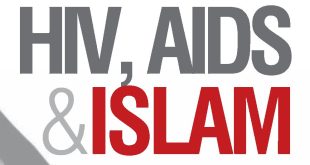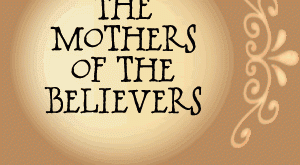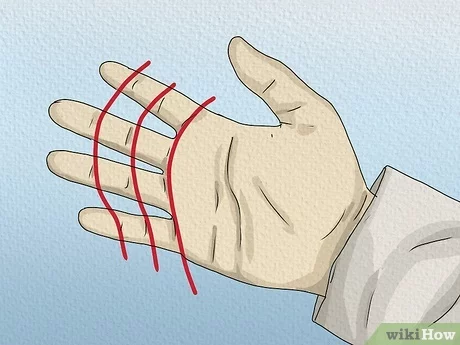 Given the centrality of the Qur'an in the lives of the majority of more than one billion Muslims worldwide, the critical question is, "What, if anything, does the Qur'an say about human rights?"
Given the centrality of the Qur'an in the lives of the majority of more than one billion Muslims worldwide, the critical question is, "What, if anything, does the Qur'an say about human rights?"
I believe that the Qur'an is the Magna Carta of Muslims. A large part of its concern is focused on freeing human beings from the bondage of traditionalism, authoritarianism (religious, political, economic, etc.), tribalism, racism, sexism, slavery, or anything else that prohibits or inhibits human beings from actualizing the Qur'anic vision of human destiny. This vision is embodied in the following classic proclamation: (And that to your Lord is the final goal) (An-Najm 53:42).
The Glorious Qur'an affirms the fundamental rights that all human beings possess. These rights are so deeply rooted in our humanness that denying or violating them is tantamount to a negation or degradation of that which makes us human.
From the perspective of the Qur'an, these rights came into existence when we did. They were created by Allah (just as we were) so that our human potential could be actualized. Not only do these rights provide us with an opportunity to develop all our inner resources but also they hold before us a vision of what Allah would like us to be — what Allah wants us to strive for and live for and die for.
The rights created or given by Allah cannot be abolished by any temporal ruler or human agency. Eternal and immutable, these rights ought to be exercised, because everything that Allah does is for a just purpose.
Right to Life
Sanctity and absolute value of human life are upheld in the Qur'an. Almighty Allah says,
(And that you slay not the life, which Allah has made sacred, except for the requirements of justice. This He has enjoined you with, in order that you may discern.) (Al-An`am 6:151)
The Qur'an points out that, in essence, the life of each individual is comparable to that of all humankind and should therefore be treated with the utmost care:
(For this reason did We decree for the children of Israel that (for) whoever slays a soul, unless it be for manslaughter or for mischief in the land, it is as though they slew all humankind, and (for) whoever keeps it alive, it is as though they kept alive all humankind.) (Al-Ma'idah 5:32)
Right to Respect
Almighty Allah says, (Verily we have honored the Children of Adam) (Al-Israa' 17:70). Human beings are deemed worthy of esteem because, of all creation, they alone chose to accept the Trust, one aspect of which is freedom of the will. Almighty Allah says,
(Verily We offered the Trust unto the heavens and the earth and the mountains, but they shrank from bearing it and feared from it, and man undertook it; indeed he is unjust, ignorant.) (Al-Ahzab 33:72)
Human beings can exercise freedom of the will because they possess the rational faculty that distinguishes them from all other creatures. In the Glorious Qur'an, Almighty Allah says,
(And when your Lord said to the angels, "I will place a vicegerent in the earth.") (Al-Baqarah 2:30)
Although human beings can become "the lowest of the low" (by doing evil deeds),
Almighty Allah declares that they have been made "in the best make":
(Indeed We created man in the best make. Then We render him the lowest of the low, except those who believe and do righteous deeds: They shall have a reward unfailing.) (At-Tin 95:4–6)
Human beings have the ability to think, discern right from wrong, and do good and avoid evil. Thus, on account of the promise contained in being human (namely, the potential to be Allah's vicegerents on earth), all human beings are to be respected and their humanness is to be considered an end in itself.
Right to Justice.
The right to seek justice and the duty to do justice are greatly emphasized in the Qur'an. Almighty Allah says,
(O you who believe, be upright for Allah, bearers of witness with justice, and let not hatred of a people incite you not to deal justly. Deal justly — that is nearer to piety, and be careful of (your duty toward) Allah; surely Allah is Ever-Aware of what you do.) (Al-Ma'idah 5:8)
And again, in Surat An-Nisaa', the importance of upholding justice is emphasized:
(O you who believe, be maintainers of justice, witnesses for Allah, even though it be against yourselves or (your) parents or (your) near relatives, whether (the case be of) a rich or a poor, for Allah is nearer unto both (than you are). Therefore, do not follow (your) low desires, lest you deviate, and if you swerve or turn aside, then surely Allah is Ever-Aware of what you do.) (An-Nisaa' 4:135)
In the context of justice, two concepts are used in the Qur'an: `adl (Arabic for justice) and ihsan (Arabic for goodness and perfection). Almighty Allah says,
(Verily Allah enjoins the doing of justice and the doing of good and the giving to the kindred, and He forbids lewdness and abomination and wickedness.) (An-Nahl 16:90)
Both concepts are enjoined, and both are related to the idea of balance. However, the two concepts are not identical in meaning. `Adl is defined by A.A.A. Fyzee, a well-known Muslim scholar, as to be equal, neither more nor less. Explaining this concept, Fyzee wrote,
In a court of justice, the claims of the two parties must be considered evenly, without undue stress being laid upon one side or the other. Justice introduces the balance in the form of scales that are evenly balanced.
`Adl was described in similar terms by Abul Kalam Azad (1888–1958), a noted writer and famous translator of the Qur'an:
What is justice but the avoiding of excess? There should be neither too much nor too little, hence the use of scales as the emblems of justice.
Lest any one try to do too much or too little, it is pointed out in the Qur'an that no human being can carry another's burden or attain anything without striving for it. Almighty Allah says,
(Or has he not been informed of what is in the Scriptures of Moses and (of) Abraham, who fulfilled (the commandments), that no bearer of burden shall bear the burden of another and that man shall have nothing but what he strives for?) (An-Najm 53:36–39)
As individual merit is part of `adl, the Qur'an teaches that merit is not determined by lineage, sex, wealth, worldly success, or religion; it is rather determined by righteousness. Righteousness consists of both right iman (faith or belief) and just `amal (actions or deeds), as clearly indicated by Almighty Allah:
(It is not righteousness that you turn your faces toward the east and the west, but righteous are those who believe in Allah and the Last Day and the angels and the Book and the Prophets, and give away wealth, out of love for Him, to the kinfolk and the orphans and the needy and the wayfarer and the beggars and for (the emancipation of) the slaves, and keep up Prayer and pay the poor rate, and the performers of their promise when they make a promise, and the patient in distress and affliction and in time of conflicts. Such are they who are true (to themselves), and such are they who guard (against evil).) (Al-Baqarah 2:177)
(Verily the most honored of you in the sight of Allah is the most righteous of you.) (Al-Hujurat 49:13)
Surat An-Nisaa' clearly distinguishes between passive believers and those who strive in the way of Allah:
(Not equal are those of the believers who sit still — other than those who have a (disabling) hurt — and those who strive in the way of Allah with their wealth and lives. Allah has conferred on those who strive with their wealth and lives a rank above the sedentary, and unto each Allah has promised good, but Allah shall grant to those who strive a great reward above the sedentary.) (An-Nisaa' 4:95)
In the spirit of `adl, just as special merit is considered in the context of rewards, special circumstances are also considered in the context of punishments. For instance, for crimes of unchastity, identical punishments for a guilty man or woman are prescribed in the Qur'an. However, the Qur'an differentiates between different classes of women: For the same crime, slave women were given half of the punishment, while the Prophet's wives were warned of double the punishment given to a "free" Muslim woman.
Here, it is self-evident that the Qur'an upholds high moral standards, particularly in the case of the Prophet's wives, whose actions had a normative significance for the community. However, such a distinction also reflects Allah's compassion for slave women, who were socially disadvantaged.
While `adl is constantly enjoined in the Qur'an, the Qur'anic context goes beyond this concept to ihsan, which literally means restoring the balance by making up a loss or deficiency. Understanding this concept necessitates the understanding of the nature of the ideal Ummah or society envisaged in the Qur'an.
The word ummah comes from the root umm (Arabic for mother). The ideal Ummah cares about all its members, just as an ideal mother cares about all her children, knowing that all are not equal and that each has different needs.
While showing undue favor to any child would be an unjust act, a mother who gives a disabled child more care than the care she gives to other children is not considered unjust. In fact, such a mother exemplifies the spirit of ihsan by helping to make up for the deficiency of a child who is unable to perform some or all the basic tasks of daily life.
Thus, ihsan is the embodiment of sympathy for the "disadvantaged" segments of human society, such as women, orphans, slaves, poor and infirm people, and minorities.
Source : http://www.onislam.net
Post Disclaimer | Support Us
Support Us
The sailanmuslim.com web site entirely supported by individual donors and well wishers. If you regularly visit this site and wish to show your appreciation, or if you wish to see further development of sailanmuslim.com, please donate us
IMPORTANT : All content hosted on sailanmuslim.com is solely for non-commercial purposes and with the permission of original copyright holders. Any other use of the hosted content, such as for financial gain, requires express approval from the copyright owners.
 Sri lanka Muslims Web Portal Sri Lanka Muslims News Center
Sri lanka Muslims Web Portal Sri Lanka Muslims News Center
 Donate
Donate


